- Home
- Robert Jordan
New Spring Page 2
New Spring Read online
Page 2
Bukama met him carrying a lance and leading his yellow roan gelding, Sun Lance, followed by a beardless youth named Caniedrin, who was carefully leading Lan’s Cat Dancer. The bay stallion was only half-trained, but Caniedrin was well advised to take care. Even a half-trained warhorse was a formidable weapon. Of course, the Kandori was not as innocent as his fresh face suggested. An efficient and experienced soldier, an archer of rare skill, he was a cheerful killer who often laughed while he fought. He was smiling now, at the prospect of fighting to come. Cat Dancer tossed his head, also impatient.
Whatever Caniedrin’s experience, Lan checked Cat Dancer’s saddle girths carefully before taking the reins. A loose girth could kill as quickly as a spear-thrust.
“I told them what we’re about this morning,” Bukama muttered after Caniedrin had headed off to his own mount, “but with these Aiel, an anvil can turn into a pincushion if the hammer is slow in coming.” He never grumbled in front of the men, just to Lan.
“And the hammer can become a pincushion if it strikes with no anvil in place,” Lan replied, swinging into the saddle. The sky was plainly gray now. Still a dark gray, but only a scattered handful of stars remained. “We will have to ride hard to reach the Hook before first light.” He raised his voice. “Mount!”
Ride hard they did, cantering half a mile, then trotting, then leading the animals by the reins at a fast walk before mounting to begin over. In stories, men galloped for ten miles, twenty, but even without snow, to gallop the whole four or five miles would have lamed half the horses and winded the rest long before reaching the Hook. The silence of the fading night was broken only by the crunch of hooves or boots in the snow crust, the creak of saddle leather, and sometimes the muttered curses of men who caught a toe on a hidden stone. No one wasted breath on complaints or talk. They had all done this often, and men and horses hit an easy rhythm that covered ground quickly.
The land around Tar Valon was rolling plain for the most part, dotted with widely spaced copses and thickets, few large, but all thick with darkness. Large or small, Lan eyed those clumps of trees carefully as he led his men past, and he kept the column well away. Aiel were very good at using whatever cover they could find, places where most men would be sure a dog could not hide, and very good at springing ambushes. Nothing stirred, though. For all his eyes could see, the band he led could have been the only living men in the world. The hoot of an owl was the only sound he heard that they did not make.
The sky in the east was a much paler gray by the time the low ridge called the Hook came into sight. Well under a mile in length, the treeless crest rose little more than forty feet above the surrounding ground, but any elevation gave some advantage in defense. The name came from the way the northern end curved back toward the south, a feature plainly visible as he arranged his men in a long line along the top of the ridge to either side of him. The light was definitely growing. To the west, he thought he could make out the pale bulk of the White Tower itself, rising in the center of Tar Valon some three leagues distant.
The Tower was the tallest structure in the known world, yet it was overshadowed by the bulk of the lone mountain that rose out of the plains beyond the city, on the other side of the river. That was clear enough when there was any light at all. In the deepest night, you could see it blocking the stars. Dragonmount would have been a giant in the Spine of the World, but there on the plain, it was monstrous, piercing the clouds and rising taller. Higher above the clouds than most mountains were below, its broken peak always emitted a streamer of smoke. A symbol of hope and despair. A mountain of prophecy. Glancing at it, Bukama made another sign against evil. No one wanted that prophecy fulfilled. But it would be, of course, one day.
From the ridgeline, gently rolling ground ran more than a mile to the west, to one of the larger thickets, half a league wide. Three trampled paths crisscrossed the snow between, where large numbers of horses or men afoot had passed. Without going closer, it was impossible to say who had made them, Aiel or men of the so-called Coalition, only that they had been made since the snowfall stopped, late two days ago.
There was no sign of Aiel yet, but if they had not changed direction, which was always possible, they could appear out of those trees any moment. Without waiting for Lan’s order, men drove their lances point-down into the ground beneath the snow, where they could be snatched up again easily at need. Uncasing their horsebows, they pulled arrows from their quivers and nocked them, but did not draw. Only newlings thought they could hold a drawn bow for long. Lan alone carried no bow. His duty was to direct the fight, not to select targets. The bow was the preferred weapon against the Aiel, though many southlanders disdained it. Emares and his Tairens would ride straight into the Aiel with their lances and swords. There were times when that was the only way, but it was foolish to lose men needlessly, before you must, and as surely as peaches were poison, you did lose men in close quarters with Aiel.
He had no fear that the Aiel would turn aside on seeing them. They were not wild fighters, no matter what some said; they refused battle when the odds were too great. But six hundred Aiel would see the numbers as just right; they would be facing fewer than four hundred, although placed on the high ground. They would rush forward to attack and be met with a hail of arrows. A good horsebow could kill a man at three hundred paces and wound at four, if the man drawing it had the skill. That was a long corridor of steel for the Aiel to run. Unfortunately, they carried bows made of horn-and-sinew, too, just as effective as the horsebows. The worst would be if the Aiel stood and exchanged arrows; both sides would lose men however quickly Emares arrived. Best would be if the Aiel decided to close; a running man could not shoot a bow with any accuracy. At least, it would be best if Emares was not behind time. Then the Aiel might try for the flanks, especially if they knew they were being followed, and that would kick open the hornets’ nest. Either way, when Emares struck them from the rear, Lan would gather the lances and ride down.
In essence, that was the hammer and anvil. One force to hold the Aiel in place until the other struck it, then both closing in. A simple tactic, but effective; most effective tactics were simple. Even the pigheaded Cairhienin had learned to use it. A good many Altarans and Murandians had died because they refused to learn.
Grayness welled into light. The sun would be peeking over the horizon behind them soon, silhouetting them on the ridge. The wind gusted, catching Lan’s cloak, but he assumed the ko’di once more and ignored the cold. He could hear Bukama and the other men near him breathing. Along the line, horses stamped their hooves impatiently in the snow. A hawk quartered above the open ground, hunting along the edge of the wide thicket.
Suddenly the hawk wheeled away and a column of Aiel appeared, coming out of the trees at a quick trot, twenty men abreast. The snow did not appear to hamper them to any great degree. Lifting their knees high, they moved as quickly as most men would have on cleared ground. Lan pulled his looking glass from the leather case tied to his saddle. It was a good glass, Cairhienin made, and when he pressed the brass-bound tube to his eyes, the Aiel, still a mile off, seemed to leap closer. They were tall men, many as tall as he and some taller, wearing coats and breeches in shades of brown and gray that stood out against the snow. Each had a cloth wrapped around his head, and a dark veil hiding his face to the eyes. Some might be women—Aiel women sometimes fought alongside the men—but most would be men. Each carried a short spear tipped in one hand, with a round, bull-hide buckler and several more spears clutched in the other. Their bows were in cases on their backs. They could do deadly work with those spears. And their bows.
The Aiel would have had to be blind to miss the horsemen waiting on them, but they came on without a pause, their column a thick serpent sliding out of the trees toward the ridge. Far to the west a trumpet sounded, thin with distance, and then another; to be that faint, they had to be near to the river, or even on the other side. The Aiel kept coming. A third trumpet called, far off, and a fourth, a fifth, more. Among
the Aiel, heads swung, looking back. Was it the trumpets drew their attention, or did they know Emares was following?
The Aiel continued to issue from the trees. Someone had miscounted badly, or else more Aiel had joined the first party. Over a thousand were clear of the trees, now, and still more came. Fifteen hundred, and more behind. He slid the looking glass back into its case.
“Embrace death,” Bukama muttered, sounding like cold steel, and Lan heard other Borderlanders echo the words. He merely thought them; it was enough. Death came for every man eventually, and seldom where or when he expected. Of course, some men died in their beds, but from boyhood Lan had known he would not.
Calmly, he looked left and right along the line of his men. The Saldaeans and Kandori were standing firm, of course, but he was pleased to see that none of the Domani showed any signs of edginess, either. No one looked over a shoulder for a path to run. Not that he expected any less after two years fighting alongside them, but he always had more trust of men from the Borderlands than elsewhere. Bordermen knew that sometimes hard choices had to be made. It was in their bones.
The last of the Aiel cleared the trees, easily two thousand of them, a number that changed everything, and nothing. Two thousand Aiel were enough to overrun his men and still deal with Emares, unless the Dark One’s own luck was with them. The thought of withdrawing never arose. If Emares struck without the anvil in place, the Tairens would be slaughtered, but if he could hold until Emares arrived, then both hammer and anvil might be able to draw clear. Besides, he had given his word. Still, he did not mean to die here to no purpose, nor to have his men die to none. If Emares failed to arrive by the time the Aiel came inside two hundred paces, he would wheel his company off the ridge and try to ride around the Aiel to join the Tairen. Sliding his sword from its scabbard, he held it loosely at his side. It was just a sword now, with nothing about it to catch the eye or set it out. It would never again be anything except a sword. But it held his past, and his future. The trumpets to the west were sounding almost continuously.
Abruptly, one of the Aiel in the front of the column raised his spear overhead, holding it up for the length of three strides. When he brought it down, the column came to a halt. A good five hundred paces separated them from the ridgeline, well beyond bowshot. Why under the Light? As soon as they were halted, the rear half of the column turned to face the way they had come. Were they simply being cautious? Safer to assume they knew about Emares.
Drawing out his looking glass again, left-handed, he studied the Aiel. Men in the front rank were shading their eyes with their spear-hands, studying the horsemen on the ridge. It made no sense. At best they would be able to make out dark shapes against the sunrise, perhaps the crest on a helmet. No more than that. The Aielmen seemed to be talking to each other. One of the men in the lead suddenly raised his hand overhead, holding a spear, and others did the same. Lan lowered his looking glass. All of the Aiel were facing forward, now, and every one held a spear raised high. He had never seen anything like this before.
As one, the spears came down, and the Aiel shouted a single word that boomed clearly across the space between, drowning the trumpets’ distant calls. “Aan’allein!”
Lan exchanged wondering glances with Bukama. That was the Old Tongue, the language that had been spoken in the Age of Legends, and in the centuries before the Trolloc Wars. The best translation Lan could come up with was One Man Alone. But what did it mean? Why would the Aiel shout such a thing?
“They’re moving,” Bukama muttered, and the Aiel were.
But not toward the ridge. Turning northward, the column of veiled Aiel quickly reached a trot again and, once the head of it was well beyond the end of the ridge, began to angle eastward once more. Madness piled on madness. This was no flanking maneuver, not on only one side.
“Maybe they’re going back to the Waste,” Caniedrin called. He sounded disappointed. Other voices scoffed him loudly. The general view was that the Aiel would never leave until they were all killed.
“Do we follow?” Bukama asked quietly.
After a moment, Lan shook his head. “We will find Lord Emares and talk—politely—concerning hammers and anvils,” he said. He wanted to find out what all those trumpets were about, too. This day was beginning strangely, and he had the feeling there would be more oddities before it was done.
Chapter
2
A Wish Fulfilled
Despite a fire blazing on the green marble hearth, the Amyrlin’s sitting room was cold enough to make Moiraine shiver, and only a tight jaw kept her teeth from chattering. Of course, it also stopped her from yawning, which would never have done, half a night’s sleep or not. The colorful winter tapestries hanging on the walls, bright scenes of spring and garden parks, ought to have had a coating of frost, and icicles should have been hanging from the scroll-carved cornices. For one thing, the fireplace lay on the other side of the room from her, and its warmth did not extend far. For another, the tall glassed casements behind her, filling the arched windows that let onto the balcony overlooking the Amyrlin’s private garden, did not fit as well as they might, and they leaked cold around the edges. Whenever the wind gusted outside, an icy breeze hit her back and cut through her woolen dress. Another struck her closest friend, as well, but for all that Siuan was Tairen, she would not have let it show if she were freezing to death. The Sun Palace in Cairhien, where Moiraine had done most of her growing up, had often been as cold in winter, yet there she had never been forced to stand in drafts. The chill seeped from the marble floor tiles through the flowered Illianer carpet and Moiraine’s slippers, too. The golden Great Serpent ring on her left hand, the snake biting its own tail that symbolized eternity and continuity and an initiate’s bond to the Tower, felt like a band of ice. When the Amyrlin told an Accepted to stand over there and not bother her, however, the Accepted stood where the Amyrlin pointed and tried not to let her notice any shivers. Worse than the cold, really, was the heavy smell of acrid smoke that even the heavy drafts could not dispel. It was not the smoke of chimneys, but of burned villages around Tar Valon.
Concentration on the cold kept her from fretting over the smoke. And the battle. The sky outside the windows held the gray of early morning, now. Soon, the fighting would begin again, if it had not already. She wanted to know how the battle was going. She had a right to know. Her uncle had started this war. She certainly did not excuse the Aiel in the slightest for the destruction they had brought to Cairhien, city and nation, but she knew where the ultimate blame lay. Since the Aiel arrived, though, Accepted had been confined to the Tower grounds as strictly as novices. The world outside the walls might as well have ceased to exist.
Reports came at regular intervals from Azil Mareed, High Captain of the Tower Guard, but the contents were not shared with anyone except full sisters, if with them. Questions about the fighting addressed to Aes Sedai earned admonitions to concentrate on your studies. As though the largest battle fought since Artur Hawkwing’s time, and practically under her nose, was a mere distraction! Moiraine knew she could not be involved in any meaningful way—not in any way, really—yet she wanted to be, if only by knowing what was happening. That might be illogical, but then, she had never thought she was going to join the White Ajah once she gained the shawl.
The two silk-gowned women in shades of blue, seated on opposite sides of the small writing table on one side of the room, gave no sign that they were aware of the smoke or the cold, though they were almost as far from the fireplace as she. Of course, they were Aes Sedai, with ageless faces, and for the smoke, they had certainly seen the aftermath of more battles than any general. They could remain serenity made flesh if a thousand villages burned right in front of them. No one became Aes Sedai without learning to control her emotions at need, inwardly and outwardly. Tamra and Gitara did not seem tired, though they had taken only catnaps since the fighting began. That was why they had Accepted in attendance all night, in case they wanted errands run or someone brough
t to them. As for the cold, neither cold nor heat touched sisters the way it did other people. They always appeared unaware of either. Moiraine had tried to work out how that was done; every Accepted tried sooner or later. However it was worked, it did not involve the One Power, or she would have been able to see the weaves, or at least feel them.
Tamra was more than simply Aes Sedai, she was the Amyrlin Seat, the ruler over all Aes Sedai. She had been raised from the Blue, but of course the long stole draped on her shoulders was striped in the colors of the seven Ajahs, to show that the Amyrlin was of all Ajahs and none. Over the history of the Tower, some Amyrlins had taken that more literally than others. Tamra’s skirts were slashed with all seven colors, though that was not required. No Ajah could feel itself advantaged or disadvantaged with her. Beyond the Tower, when Tamra Ospenya spoke, kings and queens listened, whether they had Aes Sedai advisors or hated the White Tower. That was the power of an Amyrlin Seat. They might not take her advice or obey her instructions, but they listened, and politely. Even the High Lords of Tear and the Lord Captain Commander of the Children of the Light did that much. Her long hair, lightly streaked with gray and caught in a jeweled silver net, framed a square, determined face. She usually got her way with rulers, but she did not take her power lightly, or use it indiscriminately, either outside the Tower or inside. Tamra was fair and just, which were not always the same thing, and she was often kind. Moiraine admired her greatly.
The other woman, Tamra’s Keeper of the Chronicles, was a different matter altogether. Perhaps the second most powerful woman in the Tower, and certainly at least equal to the Sitters, Gitara Moroso was always just, and usually fair, but kindness never seemed to occur to her. She was also flamboyant enough for a Green or a Yellow. Tall and close to voluptuous, she wore a wide necklace of firedrops, earrings with rubies the size of pigeon’s eggs, and three jeweled rings beside her Great Serpent ring. Her dress was a deeper blue than Tamra’s and brocaded, and the Keeper’s stole on her shoulders—blue, since she also had been raised from the Blue—was nearly wide enough to be called a shawl. Moiraine had heard that Gitara still considered herself a Blue, which would be shocking if true. The width of her stole certainly spoke in favor of the whispers; that was a matter of personal choice.

 Conan the Unconquered
Conan the Unconquered Conan the Triumphant
Conan the Triumphant The Eye of the World
The Eye of the World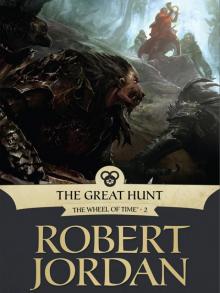 The Great Hunt
The Great Hunt Conan the Victorious
Conan the Victorious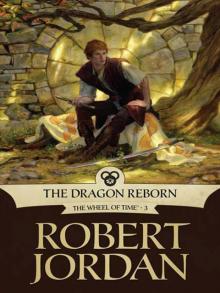 The Dragon Reborn
The Dragon Reborn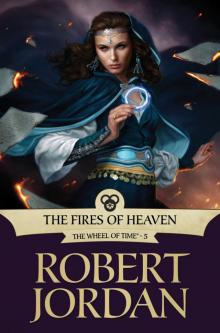 The Fires of Heaven
The Fires of Heaven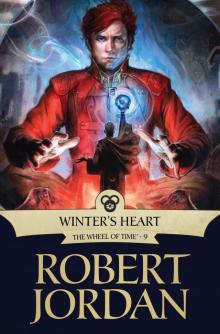 Winter's Heart
Winter's Heart Lord of Chaos
Lord of Chaos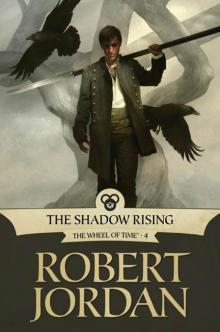 The Shadow Rising
The Shadow Rising Conan the Defender
Conan the Defender The Strike at Shayol Ghul
The Strike at Shayol Ghul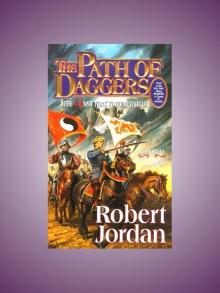 The Path of Daggers
The Path of Daggers A Memory of Light
A Memory of Light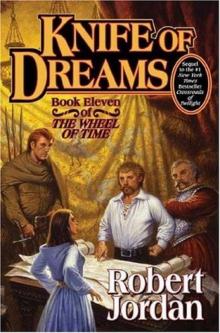 Knife of Dreams
Knife of Dreams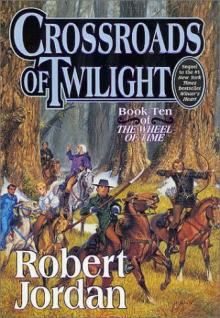 Crossroads of Twilight
Crossroads of Twilight Conan the Invincible
Conan the Invincible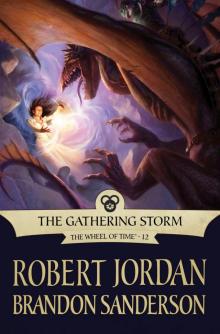 The Gathering Storm
The Gathering Storm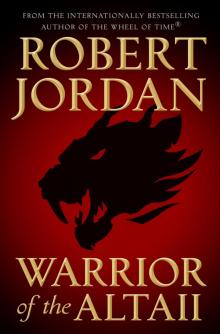 Warrior of the Altaii
Warrior of the Altaii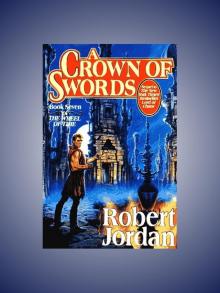 A Crown of Swords
A Crown of Swords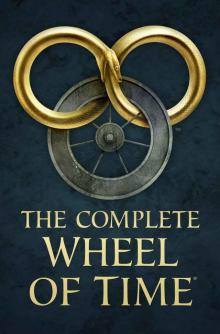 The Wheel of Time
The Wheel of Time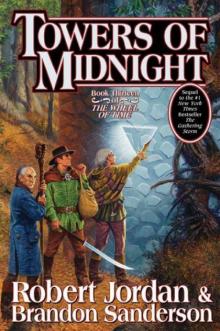 Towers of Midnight
Towers of Midnight Conan Chronicles 2
Conan Chronicles 2 Conan the Magnificent
Conan the Magnificent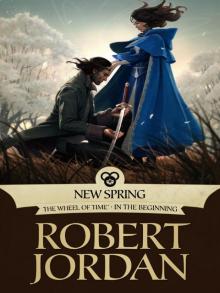 New Spring
New Spring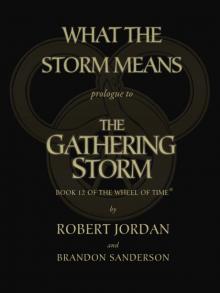 What the Storm Means
What the Storm Means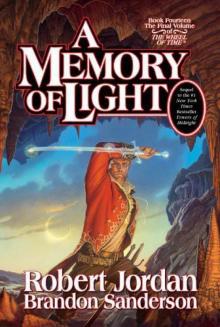 A Memory of Light twot-14
A Memory of Light twot-14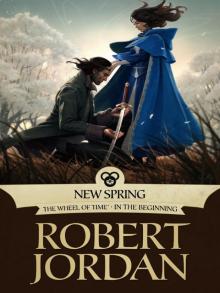 New Spring: The Novel
New Spring: The Novel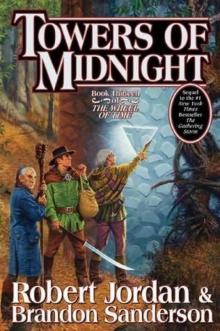 Towers of midnight wot-13
Towers of midnight wot-13 A Memory Of Light: Wheel of Time Book 14
A Memory Of Light: Wheel of Time Book 14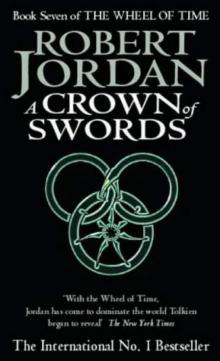 A Crown of Swords twot-7
A Crown of Swords twot-7 Lord of Chaos twot-6
Lord of Chaos twot-6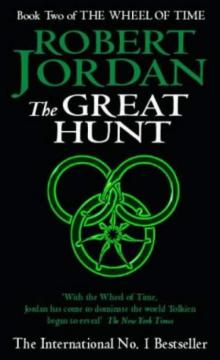 The Great Hunt twot-2
The Great Hunt twot-2 The Shadow Rising twot-4
The Shadow Rising twot-4![Wheel of Time-11] Knife of Dreams Read online](http://i1.bookreadfree.com/i1/04/03/wheel_of_time-11_knife_of_dreams_preview.jpg) Wheel of Time-11] Knife of Dreams
Wheel of Time-11] Knife of Dreams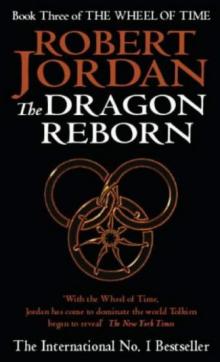 The Dragon Reborn twot-3
The Dragon Reborn twot-3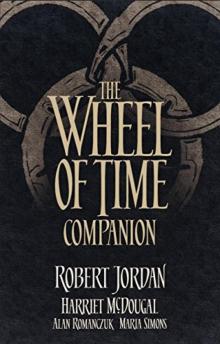 The Wheel of Time Companion
The Wheel of Time Companion The Fires of Heaven twot-5
The Fires of Heaven twot-5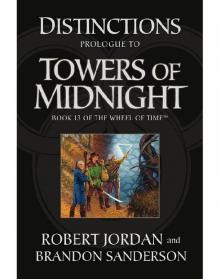 Prologue to Towers of Midnight
Prologue to Towers of Midnight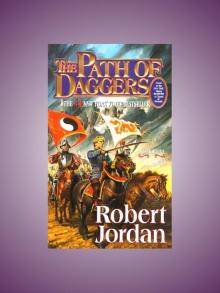 The Path of Daggers - The Wheel of Time Book 8
The Path of Daggers - The Wheel of Time Book 8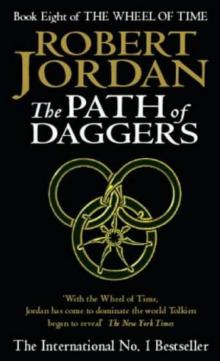 The Path of Daggers twot-8
The Path of Daggers twot-8 By Grace and Banners Fallen: Prologue to a Memory of Light
By Grace and Banners Fallen: Prologue to a Memory of Light Crossroads of Twilight twot-10
Crossroads of Twilight twot-10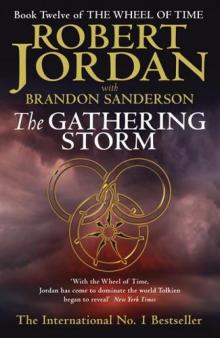 The Gathering Storm twot-12
The Gathering Storm twot-12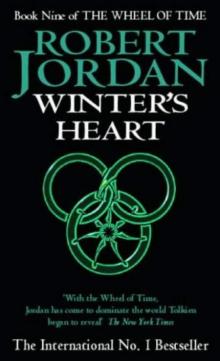 Winter's Heart twot-9
Winter's Heart twot-9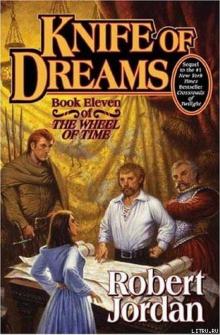 Knife of Dreams twot-11
Knife of Dreams twot-11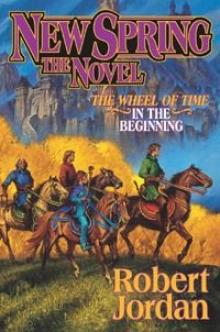 New Spring: The Novel (wheel of time)
New Spring: The Novel (wheel of time)